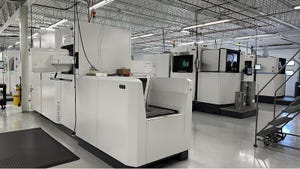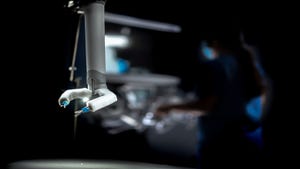Tony Radoszewski, President and CEO of the Plastics Industry Association, made his remarks at a briefing titled, “Plastic Production, Pollution and Waste in the Time of COVID-19: The Life-Threatening Impact of Single-Use Plastic on Human Health.”
July 13, 2020
![TonyRadoszewskiHeadshot-150[1].jpg TonyRadoszewskiHeadshot-150[1].jpg](https://eu-images.contentstack.com/v3/assets/blt0bbd1b20253587c0/blt5221f0f570988fd4/6514165fabaf87be795b8013/TonyRadoszewskiHeadshot-1501.jpg?width=850&auto=webp&quality=95&format=jpg&disable=upscale)
Tony Radoszewski, President and CEO of the Plastics Industry Association (PLASTICS), testified on July 7 at a Congress briefing titled, “Plastic Production, Pollution and Waste in the Time of COVID-19: The Life-Threatening Impact of Single-Use Plastic on Human Health.” Radoszewski refuted attacks on a material and an industry that have played a critical role in the U.S. response to the novel coronavirus.
“The idea that single-use plastic medical products...are ‘life-threatening’ contradicts the advice of this subcommittee, which recently urged the President to use all his power to increase production and distribution of masks, face shields, surgical gowns, isolation gowns, goggles, disposable caps, disposable shoe covers, and disposable gloves,” Radoszewski told the House Oversight and Government Reform Committee’s Subcommittee on the Environment.![TonyRadoszewskiHeadshot-150[1].jpg TonyRadoszewskiHeadshot-150[1].jpg](https://eu-images.contentstack.com/v3/assets/blt0bbd1b20253587c0/bltf5c0df47e57fd65e/6514165eb5e3e286fcb53421/TonyRadoszewskiHeadshot-150_5B1_5D_0.jpg?width=500&auto=webp&quality=80&disable=upscale)
As the only witness to highlight the importance of plastics, Radoszewski thanked Ranking Member Fred Keller (R-PA) for giving him the opportunity to describe the plastics industry’s effort to meet unprecedented demand for personal protection equipment (PPE), as well as components for ventilators and other medical equipment.
Congressman Keller noted, “As the Covid-19 pandemic began to spread in the United States, one thing became abundantly clear: The frontline workers of America would need access to personal protective equipment at a rate never seen before. The plastics industry kicked production of these life-saving products into high gear.”
As COVID-19 began to spread, the federal government and states designated plastics companies and their employees as essential businesses and workers.
“Plastic is one of the most advanced and useful materials humanity ever created, contributing to longer, healthier lives for people across the globe. Without it, disease and hunger would be more common, not less,” Radoszewski told the subcommittee, emphasizing the importance of single-use plastics and underscoring the conflict between environmental groups seeking to ban hygienic single-use items and public health officials recommending them to help Americans protect themselves.
Radoszewski also defended plastics in addressing environmental concerns, explaining that “all materials require energy and other resources in their manufacture, and all produce waste. However, over the entire lifecycle in most applications, plastic requires less energy and conserves more resources than glass, paper, or aluminum, saving fuel, energy, and money, especially for busy working families.”
PLASTICS supports the Recover Act, which would modernize US recycling infrastructure for the 21st century, preventing plastics from entering the environment and providing plastics companies with recycled materials to create new products.
About the Author(s)
You May Also Like



